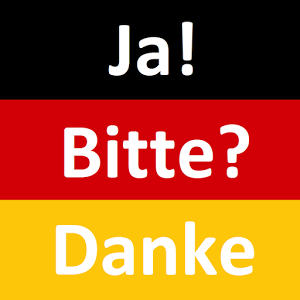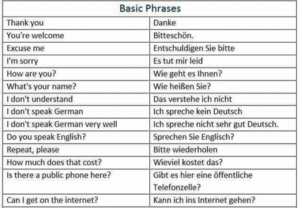When people think of the German language, they often picture bustling Berlin cafés or the crisp consonants of a Bavarian news anchor. But the reach of German extends far beyond the borders of Germany itself. From Namibia to New York, from Brazil to Belgium, the German language has taken root in unexpected places, shaping communities, education … [Read more...]
Why German Compound Words Are So Long
The Language of LEGO Words Ever stumbled upon a German word so long you had to stop and count the syllables? Something like Donaudampfschifffahrtsgesellschaftskapitän or Rindfleischetikettierungsüberwachungsaufgabenübertragungsgesetz? You’re not alone. For learners and lovers of language alike, German compound words are infamous for their … [Read more...]
Bizarre German Idioms and What They Mean
When Language Gets Weird – and Wonderful Let’s be honest - no one does linguistic weirdness quite like the Germans. In what other language can you “have pigs,” “live like a maggot in bacon,” or “stand like an ox in front of a mountain”? These expressions might sound absurd at first, but they’re part of a long, colorful tradition of idiomatic … [Read more...]
Hidden Messages in German Fairytales
Not Just Bedtime Stories For many, German fairytales bring to mind magical forests, talking animals, and wicked witches. But beneath the surface of these enchanting tales lies a world far more complex. The stories collected by the Brothers Grimm and other folklorists are not just whimsical entertainment - they’re coded messages, steeped in … [Read more...]
German Proverbs and Their Meanings
A Country That Thinks in Proverbs Proverbs are the poetry of everyday life - short, punchy, and packed with centuries of wisdom. In Germany, they’re more than quaint sayings. They’re the go-to tools for expressing hard truths, sly warnings, and philosophical observations. Germans don’t just say what they mean. Often, they’ll let a well-placed … [Read more...]
Untranslatable German Words
Words the World Wishes It Had Every language has its quirks, but German might just be the master of invention when it comes to words that simply don’t translate. Ever longed for a place you’ve never been? Felt joy at someone else's misfortune (be honest)? Wished for a single word that could explain the awkwardness of two people dodging each … [Read more...]
The Evolution of the German Language: From Old High German to Modern Dialects
This article explores the evolution of the German language, tracing its development from its early roots to the diverse regional dialects spoken today. Along the way, we will examine how historical milestones such as Martin Luther’s Bible translation, the printing press, and German unification helped shape modern German. The German language has … [Read more...]
Exploring the German Language Dialects
The German language, known for its precision and richness, is not a monolith but a mosaic of dialects that paint a colorful linguistic landscape across German-speaking regions. These dialects, deeply rooted in history and culture, offer a fascinating window into the diversity of the German-speaking world. In this comprehensive guide, we will … [Read more...]
Germany Exploration: Basic German Phrases for Travelers
Traveling to Germany soon? Whether you're heading to Berlin's urban jungles, the Black Forest's lush woods, or the Bavarian Alps, knowing a handful of basic German phrases can make your journey smoother and more enriching. While many Germans speak English, especially in tourist areas, attempting to communicate in their native tongue is always … [Read more...]
German Language: A Journey Through Linguistic Heritage, Structure, and Influence
The German language, known natively as Deutsch, is an Indo-European language and part of the larger West Germanic family that includes English and Dutch. It is primarily spoken in Germany, Austria, Switzerland, Luxembourg, and Liechtenstein, and has around 95-100 million native speakers worldwide. It's one of the major languages of the European … [Read more...]
- « Previous Page
- 1
- 2
- 3
- 4
- …
- 7
- Next Page »









